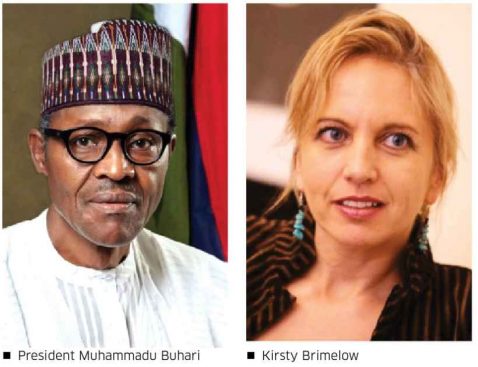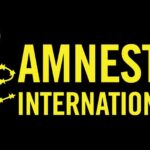The pronouncement of President Muhammadu Buhari that the rule of law must be subject to the supremacy of the nation’s security and national interest has continued to generate reactions.
A lot of divergent reactions had trailed the president’s comment at the opening ceremony of the recently held Annual General Conference of the Nigerian Bar Association (NBA) with many senior lawyers disagreeing with him.
Not to be left out, rising from its conference, the NBA, in its communique, rejected the president’s position.
In the communique signed by its immediate past president, Abubakar Mahmoud (SAN), the NBA disassociated itself from the presidential declaration and condemned it outright.
From the foreign scene, the Chairwoman of the Bar Human Rights Committee of England and Wales, Kirsty Brimelow (QC) said the pronouncement was a confused and dangerous one which has no place in liberal democracy.
Responding to enquiries from our reporter, Brimelow said the position of NBA on President Buhari’s pronouncement was “an excellent statement rejecting the President’s remarks and emphasising that politicians too must obey court orders.”
She however said, as to practicalities, lawyers must also act by taking cases against the government and institutions where there might be unlawful acts. “This may require greater use of the ECOWAS court and international law mechanisms”, she said, adding that strong use of the law is the only way to build strong institutions and hold those in power who are abusing that power to account.
“So lawyers also must walk the talk. And sometimes, this means taking cases pro bono; the payment is building a better society for the vulnerable in Nigeria rather than in money. We have a strong pro bono tradition in the UK and some of these cases have resulted in restructuring of institutions, repealing of certain laws and reparations for people affected,” she said.
Speaking further through her presentation at a plenary session on “Rule of Law and National Security” at the NBA Conference, which was made available to Daily Trust, Brimelow said the president’s comments that “law can only be optimally practiced in a Nigeria that is safe, secure and prosperous” is not sacrosanct, because to her, law should be functioning at its optimum when a country is unsafe, insecure and poor. “This is the testing of its (law) strength and relevance to those who most need it,” she added.
According to her, national security has always been a cloak for terrible injustices and has been used to smother due process, citing recent imprisonments of lawyers, judges and journalists in Egypt and Turkey as grim illustrations.
“The president’s sentiments have no place in the international law framework that Nigeria has ratified. The International Covenant on Civil and Political Rights, the Convention Against Torture, the Convention on the Rights of a Child, the Convention on the Elimination of All Forms of Discrimination Against Women set out legal provisions which are binding upon the President of Nigeria and its government.
“UN’s International Covenant on Civil and Political Rights (ICCPR) protects the right to not be arbitrarily detained (Article 9), to be presumed innocent, to enjoy a fair trial (Article 14), to enjoy freedom of thought and conscience (Article 19).
“Even where there has been a derogation due to a State of Emergency, certain rights are non-derogable such as the prohibition on torture. Derogation from other articles is only permissible where there is an emergency threatening the life of the nation. This is very different to a public good or national security excuse,” Brimelow, who is also the Head of International Human Rights at Doughty Street Chambers in London, said.
She added that the president’s sentiments also have no place in Nigeria’s constitution which reflects international law. “Quite rightly the drafters didn’t add a subcategory that if there might be a threat to national security, there is no need for a fair trial or due process,” she said.
The constitution, according to her, guarantees due process in the pre-trial and trial phases as well as other rights, such as the prohibition of torture and inhumane and degrading treatment.
“The test of the functioning of the Rule of Law is in the most difficult cases. The greater good requires that the law is applied to the cases where the most reviled are being tried. Hard cases make good law. The graver the accusation, the more we need to be vigilant that human rights are protected.
“This is the message that the president should have been conveying when he spoke. Otherwise talking of respect for the Rule of Law is nothing more than a platitude,” she said.
She went further to say that the president’s speech was the signal of preparedness to breach rights of terrorist suspects as retaliation for suspected breaching of civilians’ rights.
“This is otherwise known as a race to the bottom. This race has happened many times in history. It remains a popular run in countries which do not have liberal democracies or democracies at all. There is no long-term benefit to citizens.
“The international law framework was developed after World War II to protect citizens. It was in recognition that states could not be trusted as to how to treat their citizens. Six million dead Jews was evidence enough. It was a “never again” promise by States. And so international law is a safeguard against States acting with arbitrary, extra-judicial violence and repression.
“Nigeria must stick to the promises it has made internationally and lawyers and courts must be robust to stop President Buhari in the starting blocks,” she said.

 Join Daily Trust WhatsApp Community For Quick Access To News and Happenings Around You.
Join Daily Trust WhatsApp Community For Quick Access To News and Happenings Around You.


